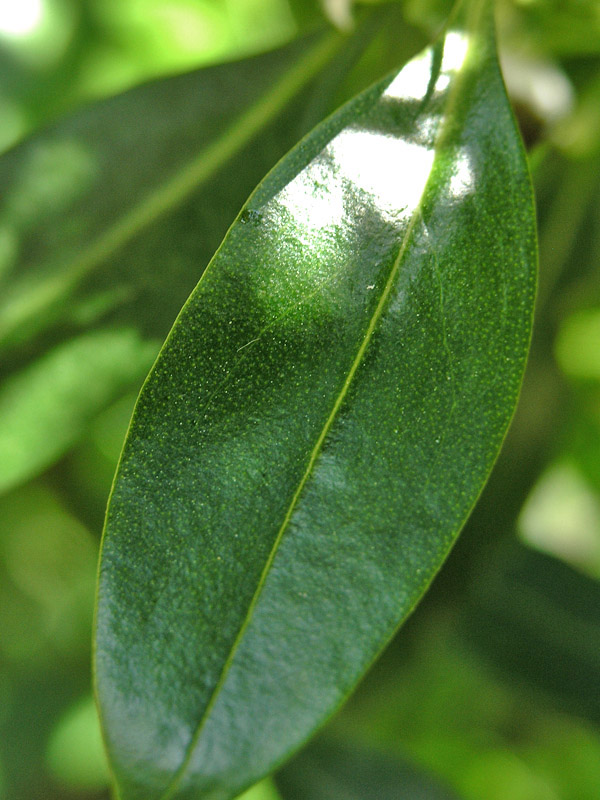
Woody > Myoporum > Myoporum laetum > Myoporum laetum
Myoporum laetum
The Ngaio, Mousehole Tree
Origin: New Zealand.
Mike's
Opinion


"
Myoporum laetum is an attractive ornamental tree however, it has a few downfalls. The leaves are poisonous and it is considered invasive in parts of the United States because of its ability to spread and grow faster than many native plants.
Michael Pascoe, NDP., ODH., CLT., MSc. (Plant Conservation)
"
| Family |
| Scrophulariaceae |
| Genus |
| Myoporum |
| Species |
| laetum |
| Category |
| Woody |
| Type |
| Tree (evergreen), Shrub (evergreen) |
| Pronunciation |
| USDA Hardiness Zone |
| 9 |
| Canadian Hardiness Zone |
| Requires cool season protection under glass. |
| RHS Hardiness Zone |
| H3 - H4 |
| Temperature (°C) |
| -7 -(-1) |
| Temperature (°F) |
| 20 - 30 |
| Height |
| 6 - 10 m |
| Spread |
| 2 - 4 m |
Photographs
Description and Growing Information
Flowering Period
| General Description |
| Ornamental evergreen shrub or small tree with leaves capable of poisoning small animals. Suited for growing in coastal regions. It is considered invasive. |
| Landscape |
| Ornamental plant can be used as a shrub or a small tree in the garden. It is very salt tolerant. |
| Cultivation |
| Requires full sun and a soil pH of 6-8. Prefers warm temperature and is frost sensitive. Is very salt and drought tolerant. |
| Growth |
| Medium |
| ID Characteristic |
| A deciduous shrub with reddish or purple narrow drupes, has green lanceolate leaves all year that contain small white or yellow oil glands. When in bloom, the white flowers have small purple specks. |
| Pests |
| Sooty molds may be present in dense foliage. Thrips are a common problem. |
| Habitat |
| Coastal regions and lowland forests of New Zealand. |
| Bark/Stem Description |
| The bark is light brown or grey and rough to the touch. |
| Flower/Leaf Bud Description |
| New buds are 5 cm in size, dark brown or purple in colour. |
| Leaf Description |
| Green lanceolate leaves are 5-10 cm in length with small yellow or white oil glands. |
| Flower Description |
| Flowers are small, white with tiny purple specks and grow in 2-6 axillary cymes. It has 5 petals with 4 stomata. |
| Fruit Description |
| Grows reddish-purple drupes in clusters each up to 9 mm wide in the early summer, they are edible. |
| Colour Description |
| The bark is grey or light brown. The leaves are green with small yellow or white oil glands. The flowers are white with small purple specks. It bears red or purple drupes. |
| Texture Description |
| The bark is rough while the leaves are fleshy and oily. |
| Propagation |
| Plant seeds during the spring in a greenhouse. Scarification of the seeds will reduce the germination time. Once large enough to handle, separate into individual pots. In the following spring, after the last frost, plant in a more permanent position. For cuttings, take a 5-10 cm length with a heel during July or August. Pot in autumn and provide protection for the first winter. |
